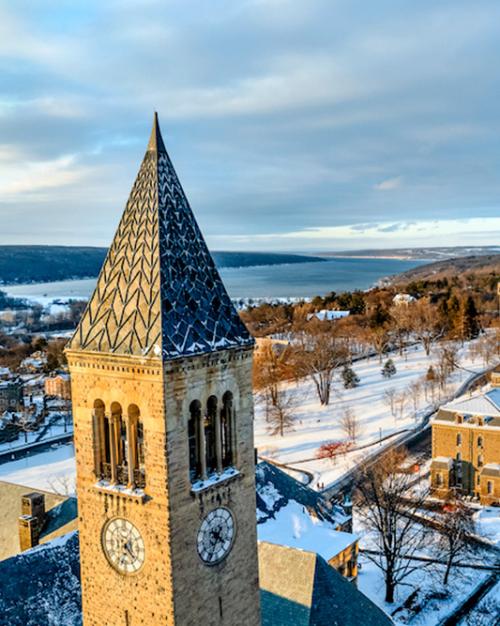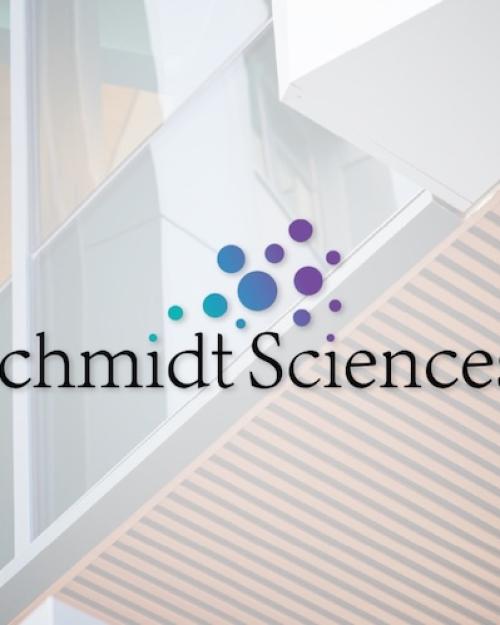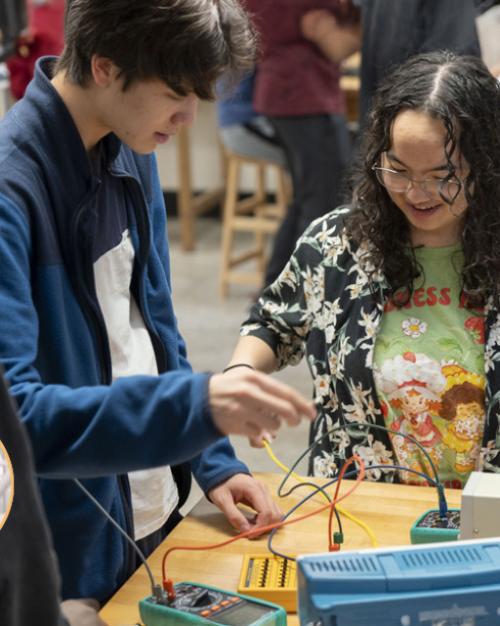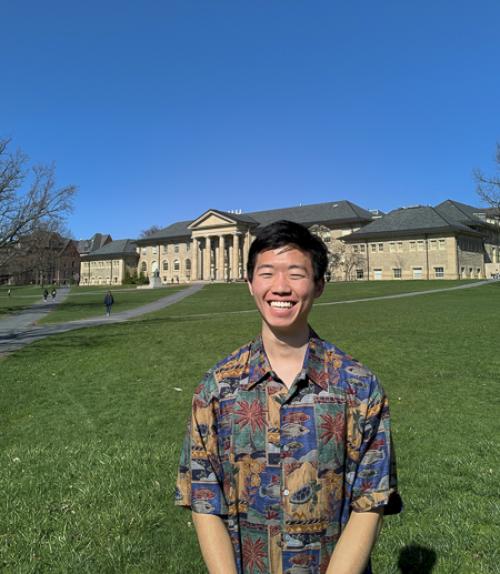Mahiro Abe
Physics
Tokyo, Japan
Why did you choose Cornell?
After spending my childhood near two of the most populous cities, New York City and Tokyo, I was attracted to the notion of a more secluded environment for undergrad. The Cornell campus is one of the most beautiful college campuses around, and after visiting it was easy to imagine myself going here. I also specifically remember visiting the Spacecraft Planetary Imaging Facility (SPIF) in the Space Sciences Building and being enamored by the science of their astronomy exhibits, and everything has come full circle in that sense because now I have an office right across from SPIF!
What is your main extracurricular activity and why is it important to you?
My main extracurricular activity was physics research. I was lucky enough to find two incredible research mentors at Cornell in Professor Gordon Stacey (astronomy) and Professor Michael Niemack (physics). My research at Cornell has been a great way to learn outside of the classroom, and to approach physics in a much more hands-on style. This was an invaluable experience in my decision to pursue graduate studies in experimental physics.
What have you accomplished as a Cornell student that you are most proud of, either inside the classroom or otherwise?
I think I am most proud of getting involved in science teaching and outreach in the past few years. I certainly benefited from the guidance of physics students a year above us, and I wanted to continue that chain of mentorship. My friends and I have been involved in the physics department teaching assistant program, and more broadly, we have been involved in outreach events with the Society of Physics Students, the Cornell Center for Materials Research and the Cornell NanoScale Science and Technology Facility.
How have your beliefs or perspectives changed since you first arrived at Cornell? What have you discovered about yourself?
Studying at Cornell has exposed me to a lot of people from different backgrounds. Something that I understand much better now is the importance of diversity in education, and how we must actively work toward a more accessible education system. My interactions at Cornell have exposed me to ongoing efforts to build a more inclusive science community, and I would like to continue working toward this goal during my graduate studies and beyond.





